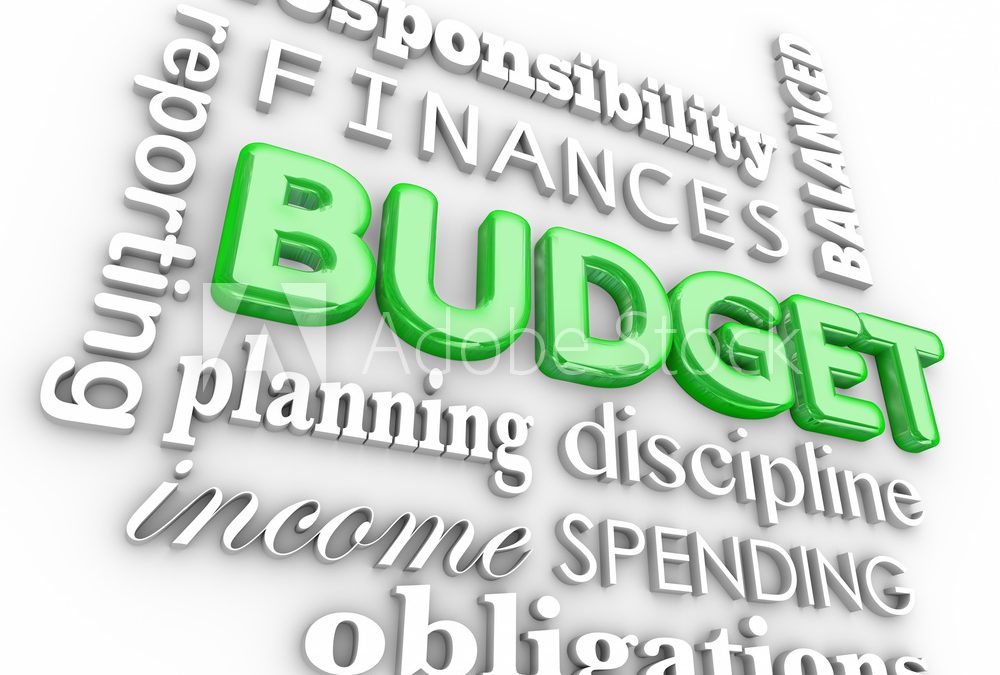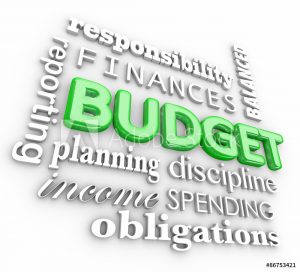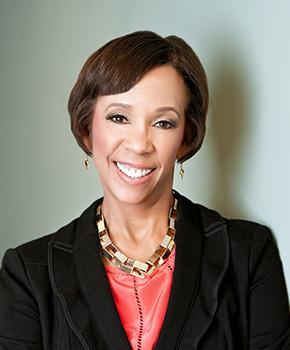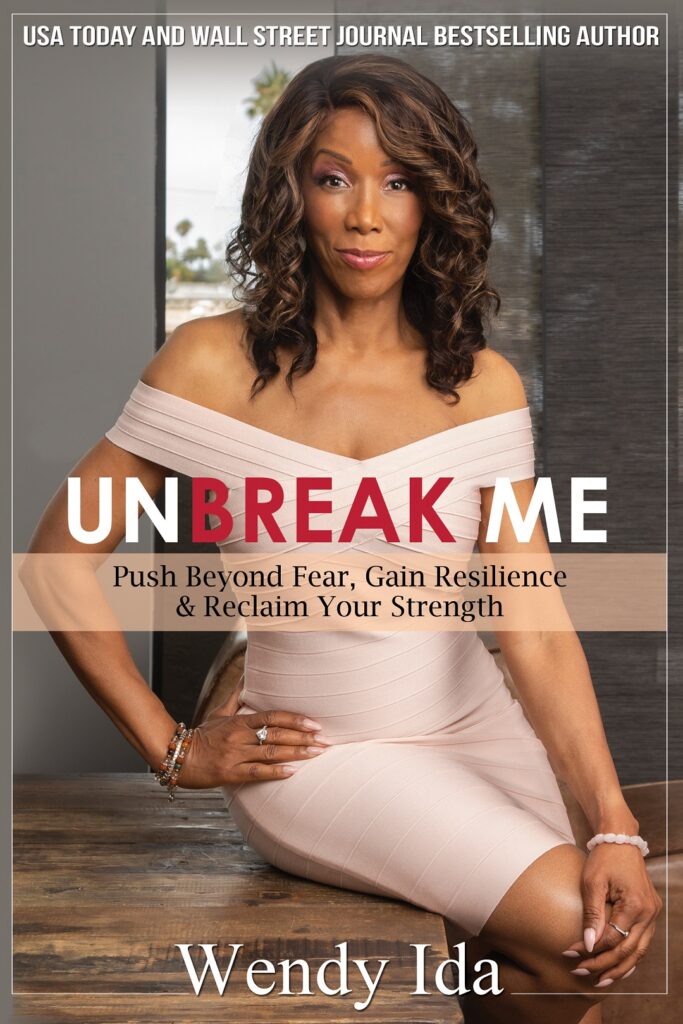
by Wendy Ida | Apr 11, 2018 | Blog
 I’ve said it before and I’m saying it again…. Exercise is just a small part of the story when it comes to overall fitness and healthy living. Your mentality—your mindset and your commitment to yourself—are the most important factors. But you also need to pay careful attention to what you’re putting IN your body. You know that good, healthy food is important. But there’s an important step that a lot of people miss: CLEANSING.
I’ve said it before and I’m saying it again…. Exercise is just a small part of the story when it comes to overall fitness and healthy living. Your mentality—your mindset and your commitment to yourself—are the most important factors. But you also need to pay careful attention to what you’re putting IN your body. You know that good, healthy food is important. But there’s an important step that a lot of people miss: CLEANSING.
Cleansing prepares your body to absorb and use ALL of those good nutrients that you’re eating. Preparing your body ahead of time to use and absorb what you eat is the step most people miss!
Think about this…. If you bought a fine vase, you wouldn’t display it on a table strewn with old magazines and television remotes, would you? Of course not. It would take away from the beauty and more importantly the function for which it was intended. The same is true with your body. Cleaning on the inside will prepare it to function the way it should, to the highest possible degree. That’s why I say—what you put in your body is just as important as what you do with it.
Cleansing is not as hard as you might think, either. I’ve found a really gentle cleanse that is easy on your body and can be done by the most squeamish person. By the way, I’m squeamish. (LOL!) So I was careful in choosing. I’ve always supported doing a cleanse, but in the past I didn’t necessarily recommend a particular cleansing program because some don’t have good scientific research to support their claims. However, I’ve found a cleanse now that gets consistently good results and has been confirmed by a number of well-designed clinical studies.
Why should you cleanse?
 Well, besides making you feel like a million bucks and kick-starting a healthy nutritional lifestyle, cleansing has two other huge benefits. First, it actually helps you lose fat, not muscle—including visceral fat (the abdominal fat deep within your core, around your organs) that is tied to a higher risk of heart attacks and Type 2 diabetes. It also helps your body flush out toxins—especially environmental toxins that you have absorbed over the years—which are stored in fat cells.
Well, besides making you feel like a million bucks and kick-starting a healthy nutritional lifestyle, cleansing has two other huge benefits. First, it actually helps you lose fat, not muscle—including visceral fat (the abdominal fat deep within your core, around your organs) that is tied to a higher risk of heart attacks and Type 2 diabetes. It also helps your body flush out toxins—especially environmental toxins that you have absorbed over the years—which are stored in fat cells.
Other benefits include
- Supporting healthy aging by reducing age-related tissue damage
- Improving athletic performance for both men and women
- Improving blood vessel health
- Enhancing weight loss and improving body composition
- Supporting long-term weight maintenance
One of the big differentiators in the cleanse I use is that it helps your whole body, all the way down to the cellular level! Not just your gastrointestinal tract, but also your liver, colon, circulation, and your lymphatic system. And it reduces inflammation throughout your body. Compared to people on a standard “heart-healthy” diet, both men and women on this cleansing plan lost more weight and more body fat (twice as much visceral fat) and saw greater improvements in cardiovascular health. They also found the plan convenient and easy to stick to, unlike the conventional dieters in the studies!
It’s no secret that cleansing is the best way to start your healthy lifestyle!
 If you desire weight loss, better energy, performance training, or just aging gracefully, I can help connect you with the right system to meet your goals. The system I use is easy and flexible and comfortable for any busy lifestyle. On top of that, I’ll stick with you to help you stay with it and get the most out of the cleanse!
If you desire weight loss, better energy, performance training, or just aging gracefully, I can help connect you with the right system to meet your goals. The system I use is easy and flexible and comfortable for any busy lifestyle. On top of that, I’ll stick with you to help you stay with it and get the most out of the cleanse!
Cleansing is a great way to start your journey to finally reaching your goals and dreams. But it’s only one step. Consistent, good nutrition is also important. More talk on that coming up in my subsequent blogs!
Want to learn more about my cleansing program? Send me an email at info@wendyida.com!
SaveSave

by Wendy Ida | Mar 14, 2018 | Blog, Take Back Your Life
THE BEST KEPT SECRET TO REACHING YOUR GOALS!!
 Are you feeling stuck while others seem to be getting their groove on? Have you ever wished you could press the fast-forward button to reach your goals and dreams too? Well, believe it or not, YOU CAN!
Are you feeling stuck while others seem to be getting their groove on? Have you ever wished you could press the fast-forward button to reach your goals and dreams too? Well, believe it or not, YOU CAN!
So have no fear because the answer is clear. The fact is… you may need a coach!
The best of the best have coaches. Actors like Tom Cruise, Julia Roberts, and Denzel Washington all have coaches. Business moguls like Larry Page of Google and Howard Shultz of Starbucks have coaches. That’s why they are great! I have a coach, too—and it has made all the difference in helping me move ahead at a faster pace.
What does a coach do?
When you commit to a big life change, getting a coach may not be the first thing you think of. There are so many do-it-yourself guides, apps, websites, gyms, classes…. With all the information and tools out there, you can put together your own program. Right?
Well, maybe some can. There are lots of things people can do on their own. But it may be harder than it has to be. And the results won’t be as good or lasting as they could be. And the risk of failure—or giving up—are high! (Ask an experienced real estate agent how “For Sale by Owner” home sales work, and they’ll tell you: “Not well!”)
In the 1800s, the word “coach” was college slang for someone that helped “carry” a student over the finish line with exams. It was later used with sports teams, but originally it meant a one-on-one relationship. Someone that gets from where you are now to where you want to be in the future—that’s a coach, pure and simple.
A coach’s specific qualifications will depend on the subject area, but in all cases the coach brings three things to the table: structure, accountability, and my favorite: MOTIVATION!
Structure
A coach’s job is to help you get to your goal. This means, first, helping you understand your desires and set a good, achievable, realistic end goal—as well as interim goals to keep you on track.
What do I mean “achievable” and “realistic”? Think of it like this: if you’re five feet tall and an adult past your growing years, then “being 5’8” tall” is not a reasonable, achievable, or realistic goal for you! (No matter how much milk you drink or visualization you practice!) Working seriously toward that goal is only likely to make you less healthy and less happy—and anyone who says they can help you probably doesn’t have your best interests at heart.
As a coach, I would want to know instead, “Why do you say you want to be taller? What do you mean? What are you seeing in your head?” Is it a healthier you? More confident? Poised? Successful? Well, that’s different! Those are achievable—and height has nothing to do with them.
Besides understanding your desires and setting goals, a coach also helps you understand and tackle the work to get there. This is important, because there is so much information out there—some good, some not so good. You could read a whole library of books before finding an approach that works for you. Or… you can talk to a coach, who has read lots of those books, put those methods—and others—to the test, and helped people in circumstances similar to yours.
“Today we’ll start with X and go on to Y…” “Next week, we’ll talk about Z…” A coach brings structure by setting the agenda—for the month, the week, the day, the hour, or just the next ten minutes—so you don’t have to stop and figure out what to do next. Instead you can keep your momentum and energy focused on working hard.
Accountability
This brings me to another thing every coach provides. Progressing along your path to success requires accountability. This CANNOT be overstated. If structure is the roadmap, accountability is what keeps you tuned up and ready to roll.
You might think you can have accountability by yourself or with an app. Well, let’s think about that. An app—like a book or a checklist—is just a tool for focusing your own willpower. It can be a good place to start. It can provide a little structure, maybe nag you with notifications. But when things get hard, it’s easy for you to stop checking in—to ignore or turn off the notifications, or even delete the app. And no one is there to ask you why!
Change is hard. Relying on your willpower alone can make you feel like a failure when things get tough. Face-to-face accountability with a real, human coach can keep you going even when you feel tired or frustrated.
What about a friend or group of friends? Again, yes, to a point. It is important to have friends that support you. But when you leave your comfort zone and start making tough changes, a friend may not be able to give you the accountability you need. After all, they like you and want to help—and seeing you struggle can be hard. A coach accepts the responsibility to push you even when it’s uncomfortable, and to encourage you even when you complain! This does not mean they will harm you—a good coach will never bully, belittle, or injure you, or push you to injure yourself. But when you experience discomfort (and you will!) she can help you deal with it and understand why it’s happening.
Motivation
So a coach gives you structure by confirming your destination and mapping out a way to get there. A coach also brings accountability, especially when things get tough. But there’s more. A coach gives you motivation. This is what keeps you moving down the path toward your goal—cheering you along, setting the next hurdles, and giving you perspective by reminding you why you wanted to change, and helping you see how far you’ve gone. A coach can’t do the work for you—that’s your job. But she can provide the structure to help you grow, get out of your comfort zone without getting hurt, and stay motivated.
So if you’re thinking about making a change in your life—a real, lasting, substantial change—a coach can give you the structure, accountability, and motivation you need to cross the finish line and embrace the future you desire and deserve.
Go for it! Put a coach in your back pocket today!
SaveSave

by Wendy Ida | Apr 29, 2016 | Blog
You know how I am always giving you guidance on how to Take Back Your Life? Well, beyond having a healthy and fit body, there is more to do if you want to make that happen. Finances are one area I want to focus on this week. So let me introduce you to René Nourse, Founder of Urban Wealth Management. She is the ultimate professional who knows her stuff inside out. You may have seen her on CNBC, and if you have, you can appreciate how she guides you financially in language you can understand. Let me also not leave out that René is my client, too. So she truly believes in keeping her finances in shape as well as her body.

Chances are, if you’re serious about your health and fitness, you’re probably using some type of tool to keep you on track. You might be working with a personal trainer, like Wendy Ida, using a mobile app, or utilizing a wearable tracker, such as a Fitbit or Apple Watch.
Whatever method you’re using, it’s all about accountability. Believe it or not, the same holds true for your personal finances. After all, a goal is a goal, right? And frankly, the route to success is pretty much the same. If you want to improve any aspect of your financial life, setting goals, creating a plan and tracking your progress is critical to being successful. Just as you would follow the same steps in creating your fitness plan, let’s review how these same steps can be applied towards your Financial Fitness Plan.
(1) Begin with the end in mind: What are your goals for your finances? What are you trying to achieve? Having a specific goal in mind will help you stay laser focused on the outcome. For example, if your goal is to buy real estate, be specific about what you want to buy. If it’s a single family home, be clear about the details. How many bedrooms, bathrooms does your house have? Does it have a yard, what part of town do you want to want to live in? Be as specific as you can and set a date for your goal to be achieved. This step, while seemingly elementary, is actually fundamental to how successful you’ll be in meeting your goal.
(2) Write it down: Putting your financial goals in writing, and looking at them periodically—say weekly or monthly—will keep them fresh and real. Also, when writing your goals, see yourself as having already achieved the goal vs. meeting the goal sometime in the future. Instead of: “I want to be debt-free,” say: “I am debt free and no longer have balances on my…” — fill in the blank: credit cards, student loans, auto loan, etc.
(3) Track It: Know what your starting point is, so that you can track your progress and celebrate your wins. It may seem a bit daunting at first, and it might not even seem that a lot is happening at the beginning. But, trust me, you will see progress in your finances because now you’re paying attention. On the other hand, if you discover that progress is waning, you’ll know exactly what to do to get back on track.
(4) Keep it simple: How you track your progress will greatly depend on what’s most easy and convenient. There are tons of apps out there, a lot of which are free or nearly free. Minimally, you’ll want the app to include an aggregation tool that will connect and pull in transactions from your financial institutions, allow you to create customizable budgets, and send alerts—if, for example, you exceed your monthly budget. Utilizing this type of tool is very powerful because what you see is your financial life in real time.
(5) Finally, Work with a Professional: Just as you would hire a personal trainer to design a customized fitness plan, provide guidance and accountability, the same can be said about meeting your financial goals. A Certified Financial Planner or CFP®, is akin to a Financial Coach. They can help provide clarity about your finances and your goals, create a customized plan and assist in tracking your progress. Many CFP® professionals charge flat fees, so you’ll know exactly how much you’re paying for their services. To locate a Certified Financial Planner in your area, visit either the national CFP Board website, www.cfp.net or the Financial Planning Association website: www.plannersearch.org.


René Nourse, CFP®, is Founder and Managing Director of Urban Wealth Management LLC. Visit www.urbanwm.com to learn more about your financial fitness!

What’s the health of your Finances? Poor – Good – Excellent. Why?
The views expressed represent the opinion of Urban Wealth Management LLC. The views are subject to change and are not intended as a forecast or guarantee of future results. This material is for informational purposes only. It does not constitute investment advice and is not intended as an endorsement of any specific investment. Stated information is derived from proprietary and nonproprietary sources that have not been independently verified for accuracy or completeness. While Urban Wealth Management LLC believes the information to be accurate and reliable, we do not claim or have responsibility for its completeness, accuracy, or reliability. Statements of future expectations, estimates, projections, and other forward-looking statements are based on available information and Urban Wealth Management LLC view as of the time of these statements. Accordingly, such statements are inherently speculative as they are based on assumptions that may involve known and unknown risks and uncertainties. Actual results, performance or events may differ materially from those expressed or implied in such statements. Investing in securities involves risks, including the potential loss of principal. While equities may offer the potential for greater long-term growth than most debt securities, they generally have higher volatility. International investments may involve risk of capital loss from unfavorable fluctuation in currency values, from differences in generally accepted accounting principles, or from economic or political instability in other nations. Past performance is not indicative of future results. The links listed on our website offer direct access or ‘links’ to other internet websites. These sites contain information that has been created, published, maintained or otherwise posted by institutions or organizations independent of UWM. UWM does not endorse, approve, certify or control these websites and does not assume responsibility for the accuracy, completeness or timeliness of the information located there. Visitors to theses websites should not use or rely on the information contained therein until consulting with an independent finance professional. UWM does not necessarily endorse or recommend any commercial product or service described at these websites.
SaveSave
SaveSave

 I’ve said it before and I’m saying it again…. Exercise is just a small part of the story when it comes to overall fitness and healthy living. Your mentality—your mindset and your commitment to yourself—are the most important factors. But you also need to pay careful attention to what you’re putting IN your body. You know that good, healthy food is important. But there’s an important step that a lot of people miss: CLEANSING.
I’ve said it before and I’m saying it again…. Exercise is just a small part of the story when it comes to overall fitness and healthy living. Your mentality—your mindset and your commitment to yourself—are the most important factors. But you also need to pay careful attention to what you’re putting IN your body. You know that good, healthy food is important. But there’s an important step that a lot of people miss: CLEANSING. Well, besides making you feel like a million bucks and kick-starting a healthy nutritional lifestyle, cleansing has two other huge benefits. First, it actually helps you lose fat, not muscle—including visceral fat (the abdominal fat deep within your core, around your organs) that is tied to a higher risk of heart attacks and Type 2 diabetes. It also helps your body flush out toxins—especially environmental toxins that you have absorbed over the years—which are stored in fat cells.
Well, besides making you feel like a million bucks and kick-starting a healthy nutritional lifestyle, cleansing has two other huge benefits. First, it actually helps you lose fat, not muscle—including visceral fat (the abdominal fat deep within your core, around your organs) that is tied to a higher risk of heart attacks and Type 2 diabetes. It also helps your body flush out toxins—especially environmental toxins that you have absorbed over the years—which are stored in fat cells. If you desire weight loss, better energy, performance training, or just aging gracefully, I can help connect you with the right system to meet your goals. The system I use is easy and flexible and comfortable for any busy lifestyle. On top of that, I’ll stick with you to help you stay with it and get the most out of the cleanse!
If you desire weight loss, better energy, performance training, or just aging gracefully, I can help connect you with the right system to meet your goals. The system I use is easy and flexible and comfortable for any busy lifestyle. On top of that, I’ll stick with you to help you stay with it and get the most out of the cleanse!


 Are you feeling stuck while others seem to be getting their groove on? Have you ever wished you could press the fast-forward button to reach your goals and dreams too? Well, believe it or not, YOU CAN!
Are you feeling stuck while others seem to be getting their groove on? Have you ever wished you could press the fast-forward button to reach your goals and dreams too? Well, believe it or not, YOU CAN!



